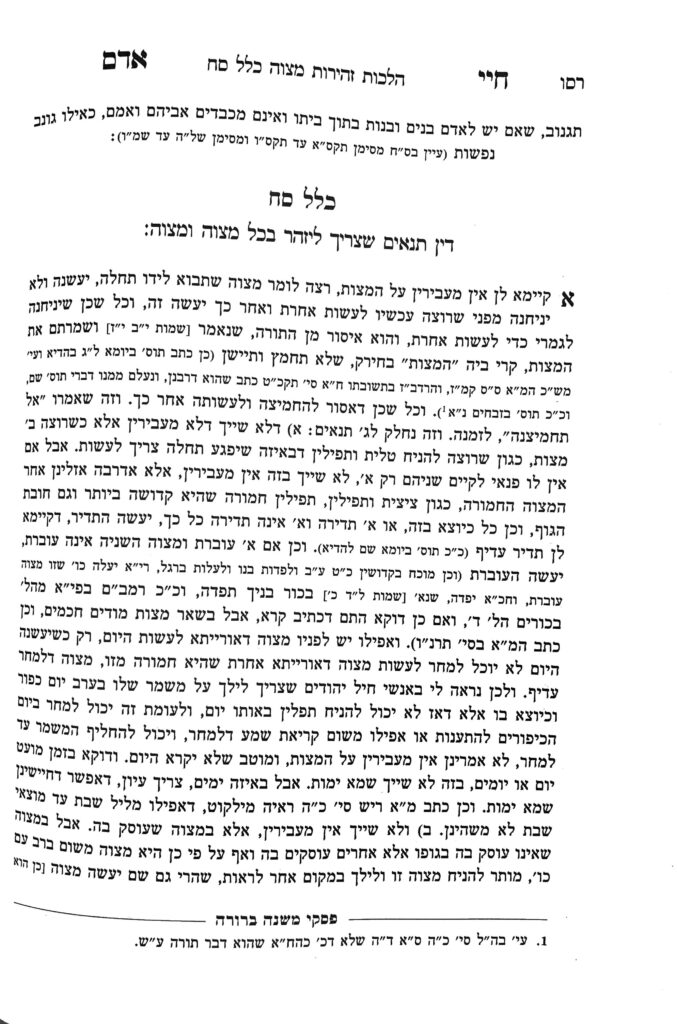We have finished siman 1, and will discuss some points brought in the sefer Nasiach Bechukecha which are not addressed by the Chayei Adam
His first point regards one who transgressed and was ma’avir al hamitzvos. For example, mitzvah A presented itself first, but the person passed over it to perform mitzvah B instead. Should the person return to perform mitzvah A, or do we say that once he has involved himself in mitzvah B, leaving mitzvah B in order to return to mitzvah A would again be considered ma’avir al hamitzvos vis a vis mitzvah B. The opinion of the Mishnah Berurah is that returning to mitzvah A would be considered being ma’avir on mitzvah B, so one should remain performing mitzvah B. However, the Turei Even disagrees, and holds that mitzvah A received the zechus to go first, so one should return to it.
Second, he points out that the discussion in our siman regards a conflict between two mitzvos, such as tallis and tefillin, in which a person plans to fulfill both at the present time. However, if one wishes to only perform one mitzvah right now, there is no conflict and no issur of ain ma’avirin. For example, if one wishes to only put on their tallis, and does not plan to put on their tefillin until a later point, there is no issur of maavir al hamitzvah to ignore the tefillin, even if they pull out their tefillin first.
Third, we learned (shiur 1369-1370) that the concept of ain ma’avirin al hamitzvos is a din deoraysa. It is important to note that even if the two mitzvos in question are derabanan, once Chazal have established them as mitzvos, one may have a chiyuv deoraysa to refrain from transgressing ain ma’avirin.
We find a similar idea regarding being machshil (indirectly causing) someone to do an aveirah. We know that there is an issur deoraysa to be machshil someone to do an aveirah, known as lifnei iver. This issur applies to being machshil someone on an issur derabanan as well, because once Chazal have established something as assur, one has a chiyuv deoraysa not to cause another to transgress it.
Summary
- One who transgressed, and was ma’avir on one mitzvah for another, should finish the second mitzvah rather than return to the first one.
- Ain ma’avirin is only an issue when one plans to perform both mitzvos at the present time. However, if one does not plan to fulfill one of the mitzvos until later, ain ma’avirin does not apply.
- Ain ma’avirin applies to mitzvos derabanan as well as mitzvos deoraysa.



